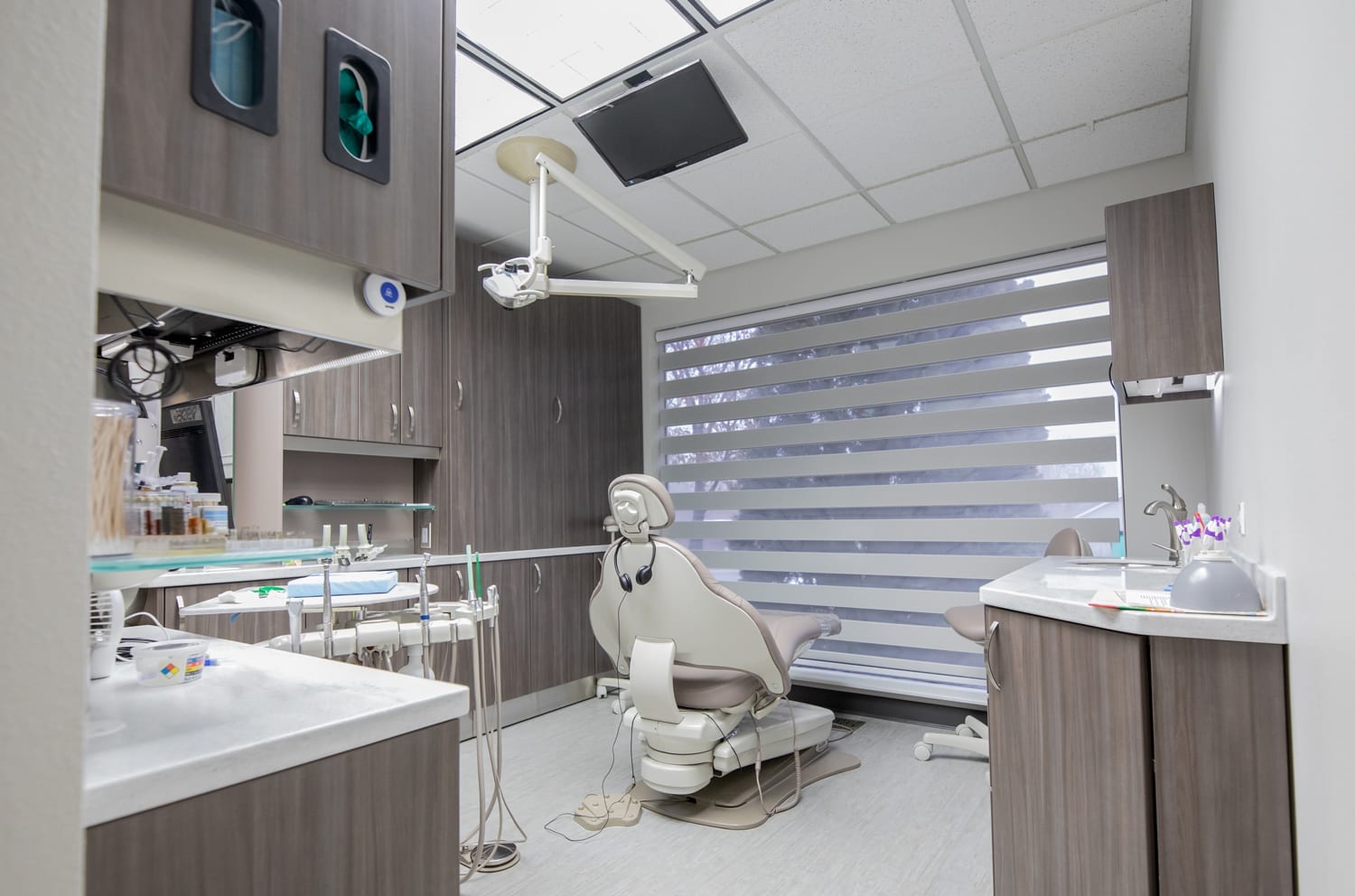
What is gum disease?
Gum disease (also called periodontal disease) is an infection of the tissues that support your teeth. Gum disease is caused by plaque, the sticky bacteria that clings to your teeth and creates toxins that damage your gums. It is a major cause of tooth loss in adults. Because gum disease is usually painless, you may not know you have it. At each regular checkup the dentist will measure the depth between your tooth and gums to identify whether you have gum disease and at what stage your gum disease is at.


What If I have gum disease?
Gingivitis is the early stage of gum disease. A sign that you are suffering from gingivitis is that your gums become red, swollen and bleed easily. At this stage, the disease is still reversible and can be eliminated by daily flossing and brushing.
Periodontitis is the advanced stage of gum disease. When you are suffering from periodontitis the gums and bone that support the teeth become seriously damaged. Whereas healthy gums and bone anchor teeth firmly in place, infected gums can cause teeth to become loose, fall out, or have to be removed by a dentist. Often patients who suffer from severe periodontitis need dental implants to repair the damage from gum disease.



Treatment for gum disease
Treatment methods depend on the type of disease and how far the condition has progressed. Good oral hygiene at home is essential to keep gum disease from becoming more serious or recurring. You don't have to lose teeth to gum disease. Brush regularly, clean between your teeth, eat a balanced diet, and schedule regular dental visits for a lifetime of healthy smiles. Our dental team uses great care and skill to give you a smile that makes you feel your best!

“Every time I go in, the staff is always so friendly and very helpful -- love the doctors -- and it’s always a pleasant environment to come to. Any procedure is always talked through to me and done very gently so I always come in very relaxed and at ease.”
